We asked Bristol's top beer bloggers and brew aficionados Boak & Bailey for some background on the city's oldest breweries...
Bristol has a long history of brewing and traces can be seen all over the city if you know where to look.
Back in the 15th century, at a time when hops were being used in Britain for the first time, Bristol had many small breweries. Some were even operated by immigrants from modern-day Germany and the Netherlands where hops had been used for much longer.
In the centuries that followed, small breweries continued to be the norm, often attached to specific inns. For example, The Packhorse in Lawrence Hill once had its own malthouse and brewery.
Bristol's first major breweries
Large commercial breweries began to emerge during the industrial revolution. The most important Bristol brewery in this period was undoubtedly George’s. Its early history is murky, as the late beer historian Martyn Cornell found when researching his definitive history of porter and stout. We do know, however, that by the 19th century it was the largest brewery in town, with multiple brewhouses across the city.
In Victorian Bristol you could enjoy locally brewed porter and stout, pale ales, and ‘old beer’ aged in vats. The latter seem to have remained popular in Bristol after it went out of fashion elsewhere partly, perhaps, because local drinkers were used to the more challenging flavours of scrumpy cider.
Over the course of a century, George’s merged with or acquired many other breweries, including another big local player, Bristol United Breweries, in 1956. It was itself taken over by London firm Courage in 1961. For a while, that meant there was only one brewery in Bristol, and no locally-owned breweries at all.
Then, in the 1970s, the real ale revolution kicked off, led by the Campaign for Real Ale (CAMRA). This brought with it a new generation of microbreweries. Some of the earliest microbreweries in Britain were founded in and around Bristol.
Smiles was founded by John Payne in 1977, initially as a plastic bucket homebrewing setup supplying a vegetarian restaurant in Montpelier. And Butcombe was founded in 1979 by Simon Whitmore, a former Courage executive, aiming to compete directly with his former employers with a classic bitter very much in their style.
Bath Ales, based outside Bristol, was formed in 1995 by former Smiles employees. The Bristol Courage brewery ceased brewing in 1999 and Smiles, in decline, limped along until 2005.
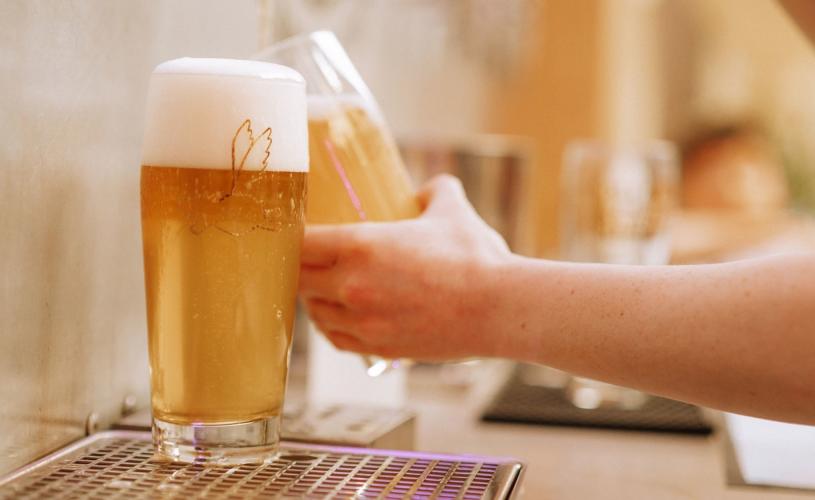
Image - Lost & Grounded Brewers
A new era for Bristol brews
A second wave of new Bristol breweries began to appear in the 2000s in the wake of the introduction of Small Brewers Relief by Chancellor Gordon Brown in 2002.
Bristol Beer Factory is a great example of this phenomenon. It was founded in 2004 by future Bristol mayor George Ferguson, along with Chris Godden and Simon Bartlett. Ferguson, an architect with an interest in Bristol’s heritage buildings, was keen to see brewing return to the former Ashton Gate Brewery, while Godden and Bartlett had a brewery in search of a home. BBF is still in operation today.
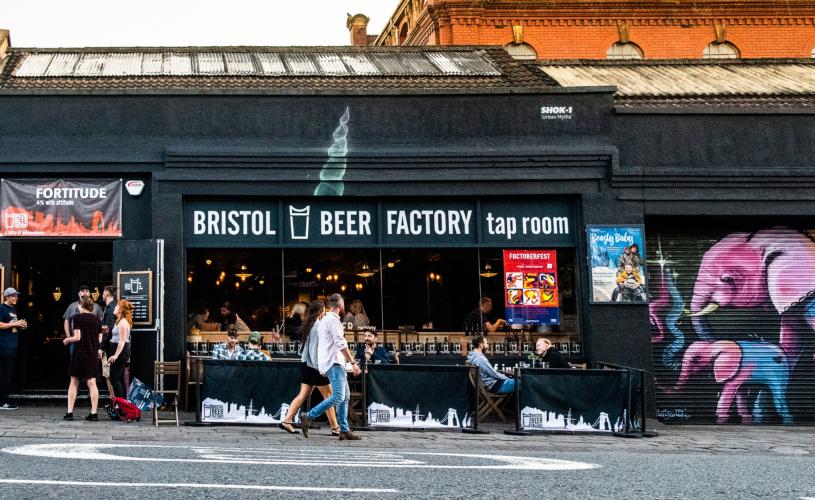
Image - Bristol Beer Factory Taproom on North Street
Following national trends, the types of new breweries opening in Bristol also began to change shifting away from traditional cask ales towards ‘craft beer’ – the precise meaning of which beer geeks will argue about endlessly. To generalise, though, these breweries tended to focus on stronger, more intensely flavoured beers – and especially those laden with hops. Arbor, for example, founded in 2007, gained a national profile among craft beer enthusiasts.
By 2017 veteran beer writer Tim Webb, one of the editors of The World Atlas of Beer, was able to count 15 breweries within Bristol’s old city boundaries and was declaring it “one of the most interesting collections of local breweries in Europe”.
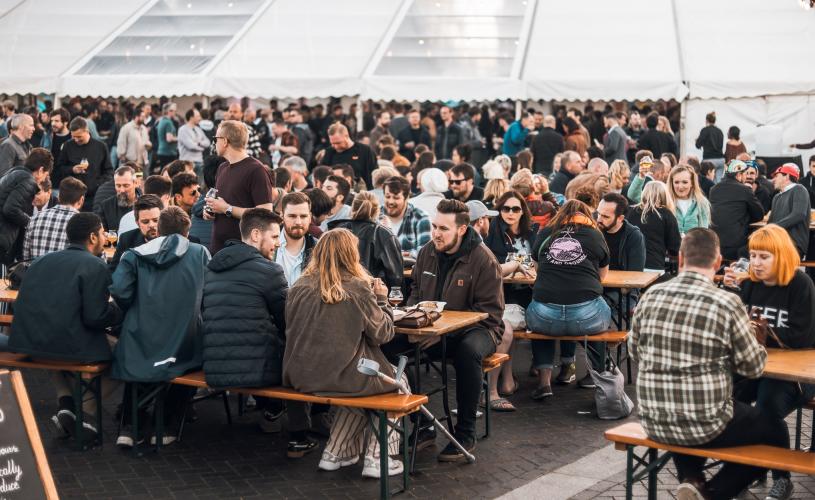
Image - Bristol Craft Beer Festival
The brewery scene in Bristol right now
Bringing things right up to date, in the past decade, we’ve seen Bristol craft beer diversify. It’s no longer just about brewing the biggest, hoppiest IPAs imaginable.
Bristol’s Lost & Grounded specialises in lager and other Continental styles, producing beers of undeniable class. New Bristol Brewery, on the other hand, is famous for its ‘pastry stouts’ – strong, dark beers that are like dessert in a glass. And Good Chemistry produces credible examples of English bitter and extra special bitter (ESB), with a modern twist.
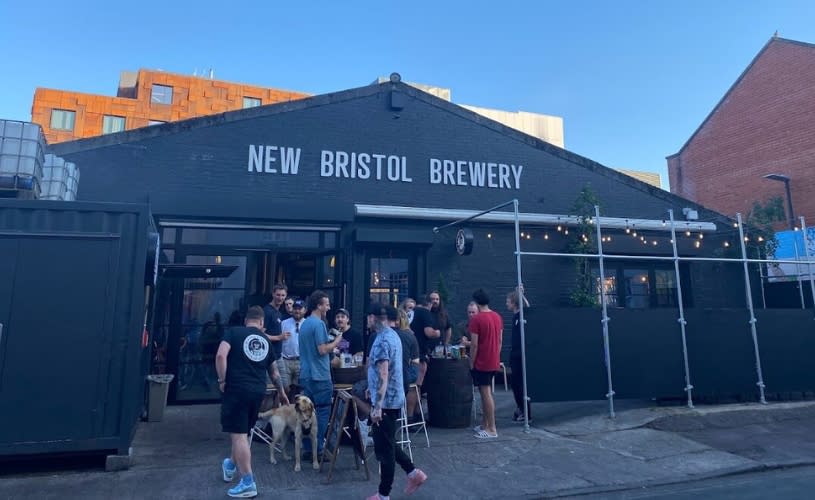
Image - New Bristol Brewery Taproom in St Pauls
One particularly fascinating development has been the growth of Left Handed Giant. It opened a second brewery at its brewpub on the riverside in 2019. The building it occupies was once part of the giant George’s brewery complex which brings the story of Bristol brewing in a neat circle.
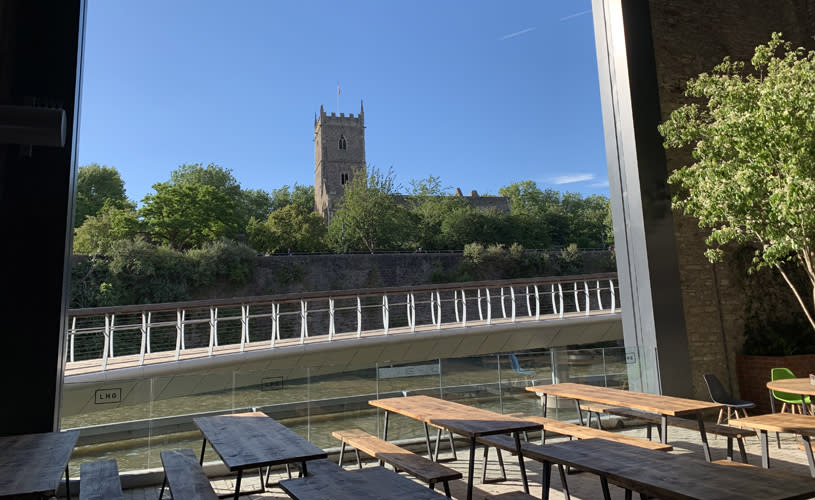
Image - Left Handed Giant Brewpub
About the authors
Boak & Bailey (Ray and Jess) have lived in Bristol since 2017. Their personal guide to the best Bristol pubs is updated annually and their book Brew Britannia tells the story of the revival of British brewing.
Read more:





